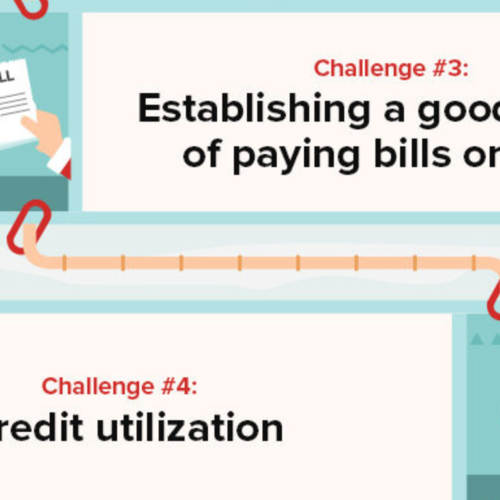Purchasing a home in Silicon Valley is an exciting endeavor. With its booming real estate market and the promise of a vibrant tech hub, finding your dream home in this region can be a thrilling experience. However, before you make a significant financial commitment, it’s crucial to ensure that you know exactly what you’re buying. This is where home inspections come into play. In this article, we will explore the importance of home inspections in Silicon Valley and provide valuable tips to help you avoid common mistakes during this process.
Understanding the Significance of Home Inspections
Home inspections are an essential part of the real estate process. They provide an in-depth examination of a property’s structures and systems, including the roof, electrical, plumbing, foundation, and more. The inspection report serves as a crucial tool that informs you about the condition of the home and any potential issues that may exist.
A home inspection is not just about uncovering minor flaws; it can also reveal major defects that may compromise your safety and the long-term value of the property. From hidden structural issues to pest infestations and mold problems, a thorough inspection can save you from buying a home that could turn into a costly nightmare down the road.
Common Mistakes to Avoid During Home Inspections
When it comes to home inspections, many buyers make avoidable mistakes that can lead to regret later on. Let’s explore some of the most common errors and learn how to avoid them.
Waiving the Inspection
In a competitive real estate market like Silicon Valley, some buyers may be tempted to waive the home inspection to gain a competitive edge in a bidding war. However, this is a risky move that can lead to unforeseen problems and financial losses. Regardless of how flawless a home might appear, there could be hidden issues that only a trained professional can detect. Even new-construction homes can have defects that need to be addressed. Therefore, it’s essential to prioritize the home inspection process and not skip it for any reason.
Hiring an Inexperienced Inspector
Saving money on a home inspection may seem like a good idea, but it can backfire if you hire an inexperienced or unreliable inspector. While it’s understandable to look for affordable options, it’s crucial to research and choose a certified, experienced home inspector who utilizes the latest equipment and technology. Seek recommendations from trusted sources, read online reviews, and compare the fees, qualifications, and services offered by different inspectors. Remember, this is a significant investment, and you want to ensure you’re working with a competent professional.
Not Being Present During the Inspection
Attending the home inspection is highly recommended. Being on-site allows you to actively participate, ask questions, and gain a better understanding of the property’s condition. It’s an opportunity to learn about the home’s systems, locate important features, and assess any potential issues firsthand. If you can’t be present for the entire inspection, try to be there towards the end, so the inspector can provide a comprehensive overview and address any concerns.
Being Overly Involved or Distracted
While it’s essential to be present during the inspection, it’s equally important not to be overly involved or distracted. Avoid shadowing the inspector too closely or getting caught up in cosmetic issues. Give the inspector space to focus on critical areas of the home, and refrain from attempting to do their job. Remember, their expertise is why you hired them in the first place. Also, be mindful of the inspector’s safety and avoid any actions that could jeopardize it.
Expecting Perfection
No home is perfect, even in Silicon Valley. It’s essential to understand that a home inspection report will likely reveal a list of both minor and major flaws. Don’t be alarmed by these deficiencies; they are to be expected. Instead of aiming for perfection, focus on identifying the major issues that may require extensive repairs or compromise the livability of the home. Your real estate agent can help you determine which problems are worth addressing with the seller.
Not Asking Questions
During the home inspection, don’t hesitate to ask questions and seek clarification on any aspects of the report that you don’t understand. The inspection report can be detailed and technical, so it’s essential to grasp the scale and significance of each issue. By actively engaging with the inspector, you can gain valuable insights into the property’s condition and make informed decisions about your purchase.
Neglecting Additional Inspections
While a standard home inspection covers many aspects, there may be additional inspections required based on the property’s specific characteristics. These may include mold, radon, lead testing, sewer, or septic system inspections, among others. Neglecting these additional inspections can lead to unpleasant surprises in the future. Consult with your inspector and real estate agent to determine if any specialized inspections are necessary based on the property’s location, age, or other factors.
Maximizing the Benefits of a Home Inspection
Now that we’ve discussed the common mistakes to avoid let’s explore how you can make the most of your home inspection and ensure a smooth purchasing process.
Prioritize Safety and Long-Term Value
The primary purpose of a home inspection is to identify potential safety hazards and any issues that may affect the long-term value of the property. Pay close attention to these aspects and consult with your real estate agent to assess the severity and implications of each problem. Understanding the significance of the issues discovered will help you negotiate repairs or adjust the purchase price accordingly.
Follow Up on Repairs
If repairs are negotiated with the seller, it’s essential to follow up and ensure they have been completed correctly. Request receipts or documentation to verify that the repairs have been carried out by qualified professionals. To provide peace of mind, consider scheduling a reinspection with your home inspector or another qualified expert to assess the quality of the repairs.
Trust the Professionals
While it’s crucial to be actively involved in the home inspection process, it’s equally important to trust the professionals you’ve hired. Your home inspector and real estate agent have the expertise and experience to guide you through this journey. Rely on their knowledge and ask for their advice when needed, but ultimately, make your decision based on the information provided in the inspection report and your personal preferences.
Conclusion
In Silicon Valley’s competitive real estate market, a thorough home inspection is a critical step in the home buying process. By avoiding common mistakes and prioritizing the inspection, you can ensure that you’re making an informed decision and protect yourself from potential financial and safety risks. Remember to hire a reputable inspector, be present during the inspection, ask questions, and focus on the major issues. By maximizing the benefits of a home inspection, you can confidently move forward in your journey to find the perfect Silicon Valley home.
Prime Single Family Homes for Sale in Silicon Valley
2
3
4
5
6
7
8
9
10
11
12
13
14
15
16
17
18
19
20
21
22
23
24
25




